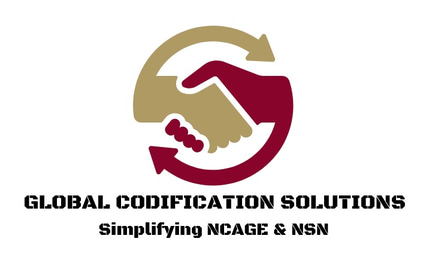Understanding NATO Stock Number (NSN)
A Gateway to Global Recognition for Defence Manufacturers
Key Benefits of NSN
Global Recognition: NSNs provide a unique identity to your product, ensuring visibility across defence organizations worldwide.
Streamlined Logistics: NSNs enable efficient inventory management, procurement, and distribution within defence supply chains.
Enhanced Marketability: Products with an NSN are catalogued in globally accessible databases, attracting potential buyers and partners.
Regulatory Compliance: Meeting codification standards demonstrates your commitment to quality and compliance with defence norms.
Cost-Effectiveness: NSNs reduce duplication of effort and resources, ensuring precise identification and procurement of items.
NATO Stock Number
The National Stock Number (NSN) is an internationally recognized 13-digit numeric code assigned to items of supply within the defence logistics network.
It is an indispensable tool for manufacturers aiming to establish their products in the defence sector.
Mandated under the DAP 2020 Codification Clause, obtaining an NSN is not just a regulatory requirement but also a strategic advantage for showcasing products on a global platform.
NSN streamlines procurement processes, ensuring seamless integration into supply chains and boosting the credibility of products in the competitive defence market.
Structure of NSN
Let us guide you through the NSN registration process, ensuring compliance and opening doors to global defence markets
An NSN is composed of 13 digits, structured as follows:
First 4 digits: NATO Supply Classification (NSC) Code, which categorizes the item.
Next 2 digits: NATO Country Code, representing the country that originated the codification.
Final 7 digits: Unique Item Identification Number, ensuring the item’s distinctiveness within the system.
For example, an NSN like 1005-13-1234567 can be broken down as:
1005: Small arms and related equipment (NSC Code).
13: France (NATO Country Code).
1234567: Unique identifier for the specific item.
Regulation of NSNs
NSNs are governed by the NATO Codification System (NCS), an international standard managed by NATO’s Allied Committee 135 (AC/135).
The system ensures consistency, accuracy, and interoperability across participating nations.
Each country has its own National Codification Bureau (NCB) responsible for overseeing and approving NSN assignments.
By obtaining an NSN, manufacturers align their products with a globally standardized system, ensuring compatibility with international defence logistics frameworks.
With our expert consultancy, we simplify the codification process, guiding you from application to registration and ensuring your product stands out in the global defence marketplace.
List of Services Offered
Submit your query/ requirements , and our representative will reach out to you shortly !
NCORE NG Access Assistance:
Creation of user IDs and passwords for Codification software.
Codification of Primary Equipment:
Codification of primary manufacturing equipment.
Codification of Associated Spares:
Codification of associated items like Spares(Materials), SMT (Special Maintenance Tools) and STE (Special Test Equipment).
Adoption of Foreign NSN:
Adoption of foreign NSNs to comply with regulatory standards.
Liaison with Government Agencies:
Assistance in navigating and coordinating with government agencies involved in codification.
Global Codification Solutions
Expert support for NCAGE Registration and NSN Generation.
© 2024. All rights reserved.
